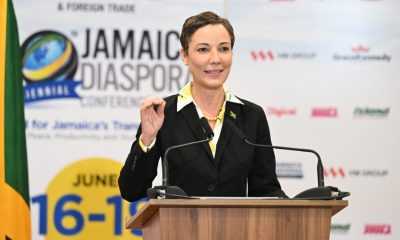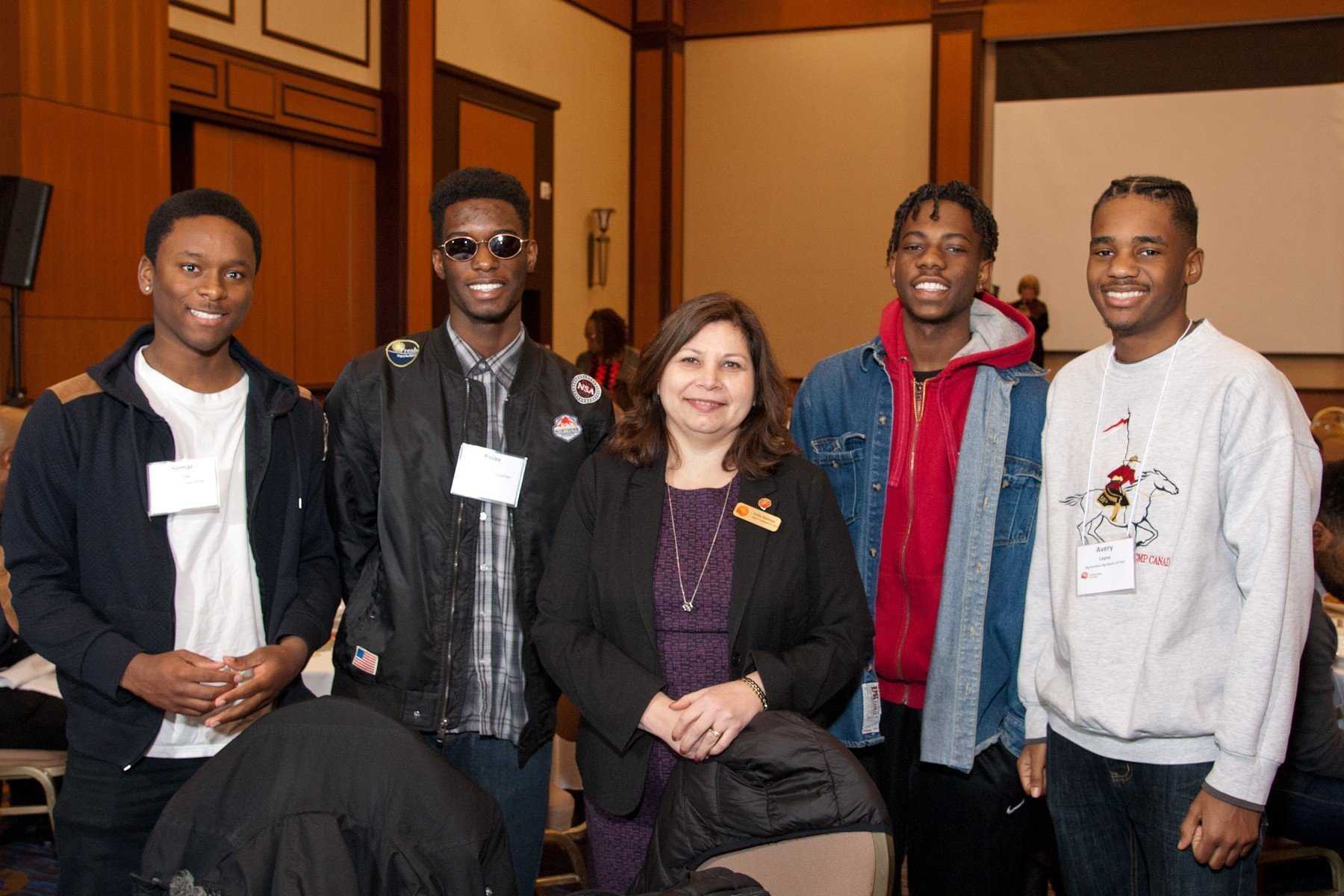BY: KATHY MCDONALD
“Mi Nah Vote” (“I am Not voting”) is a response that is too often hurdled at me as I energetically go about wards 3 and 4 in Brampton. This type of apathy is very frustrating especially when one recalls the extreme sacrifices that individuals went through so that women, black, African and people of Caribbean descent could vote. Last Friday I met some brilliant amazing minds from the African, Black and Caribbean community at First Fridays, The Election Edition. I left this networking event feeling inspired.
It was great to be in the room with political royalty like Beverly Salmon and Zanana Akande. Mrs. Salmon was first elected as the North York City councillor in 1985 and remained a councillor until 1997. When I listened to her impart wisdom and encouragement to the candidates, deep down I felt that the community owes it to her to vote. The discrimination and outright dishonesty that was used to delay her entry into city council is astounding. Nonetheless, she persevered and eventually won. Mrs. Salmon used her office to serve all her constituents including immigrants and people of color and Toronto is better because of Ms. Salmon. Even today, Mrs. Salmon is still fighting systemic discrimination. I shudder to think of the loss to Toronto if she was never elected.
Zanana Akande, who was the first black female to be elected into the Legislative Assembly of Ontario and the first black female to serve as a cabinet minister in Canada also attended the October 5th event. The rich life experiences and wisdom shared with all in attendance was so riveting that it has ignited the call to awaken the black vote. We cannot be complacent, we must go out and vote. I am not telling you who to vote for (unless you live in wards 3 and 4 in Brampton then vote for me please). I am imploring you to vote. VOTE! VOTE! VOTE! I cannot overemphasize the importance of this privilege.
I firmly believe that when individuals don’t vote they should not complain about carding, increased taxes or service fees, lack of services, institutionalized discrimination and systemic oppression, poor or lack of service, unfair practices in the education sector, late buses, dilapidated classrooms, poor EQAO results, french immersion, streaming, lack of high expectations for racialized students, inequitable access to resources, skewed expulsion rates, lack of support for special education or mental health supports, large class sizes, moldy portables, too many portables, the curriculum, lack of racialized teachers especially African, black or Caribbean teachers….. I could go on.
The above list highlights a few of the concerns that trustees across Ontario receive. Why would any parent or caregiver not go out and vote for a competent person that could adequately address some of these issues? Why not have an input into the person that is responsible for; voicing such concerns, creating or changing policies that can affect the concerns expressed or fund programs and initiatives to alleviate some of the dilemmas faced by students and their families in Ontario. When I think of the impact that a trustee has on the educational outcomes for the students and families they serve as well as the entire District School Board, it is mind-blowing that individuals would not want a say as to whether or not the incumbent should continue to serve as their trustee or be given the boot.
It is disheartening to witness individuals that willingly choose to neglect their civic duty, and in my opinion moral duty to vote. It is important to let your voice be heard even if you don’t support any of the candidates. By voting and not selecting someone you still are sending a message.
When I see the great strides at other boards, for example, the Durham District School Board (DDSB) and the bold steps taken in their journey for inclusion, it is truly mind-boggling that any person of African, black or Caribbean descent would not vote to ensure that such great work continues. The DDSB, last year had a targeted recruitment of black educators as well as they already have 12 black studies courses, both academic and applied level courses, that are available to all students in the board. How could someone from the aforementioned communities not come out and ensure that equity champions like Vice-Chair of DDSB, Patrice Barnes are not reelected? Please note she’s the only black trustee on the Board and it’s no coincidence that such initiatives are occurring during her tenure.
How could individuals not use their voice to let policymakers understand how important such work is to the community? Remember silence or absenteeism is often seen as “Wi nah care” (“We don’t care”).
As a community we ought not to, we cannot afford to, we cannot be apathetic. There are many examples of hard-working dedicated people who are ardently working to make things better. Take the time to read and examine their work ethic and productivity. It’s easy as clicking on your child’s school board website and reading about the current trustee as well as visiting the websites or social media accounts of the other candidates. Our children are depending on you. So, journey with me as together we make informed decisions to elect people that will truly work and represent the entire community including the African, Black and Caribbean community. Walk Good! Belle Marché!


 Community News2 weeks ago
Community News2 weeks ago
 Community News2 weeks ago
Community News2 weeks ago
 Community News2 weeks ago
Community News2 weeks ago
 Community News1 week ago
Community News1 week ago
 Community News1 week ago
Community News1 week ago
 Community News1 week ago
Community News1 week ago
 Community News2 weeks ago
Community News2 weeks ago
 Community News1 week ago
Community News1 week ago































